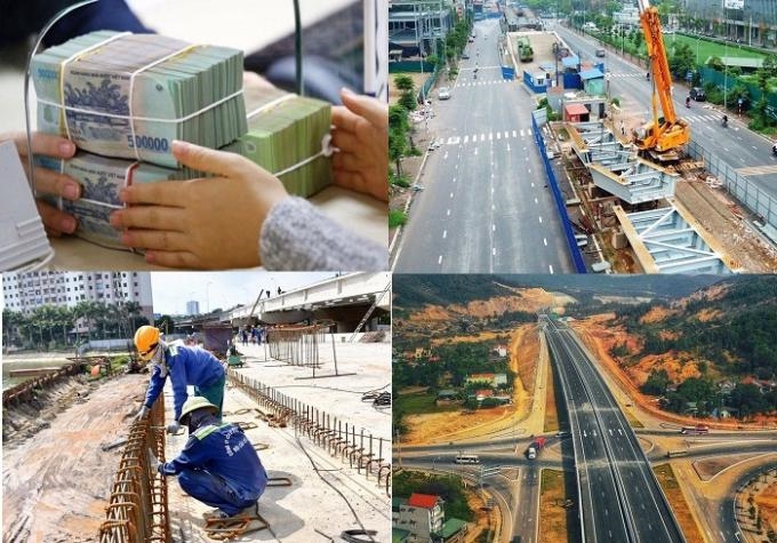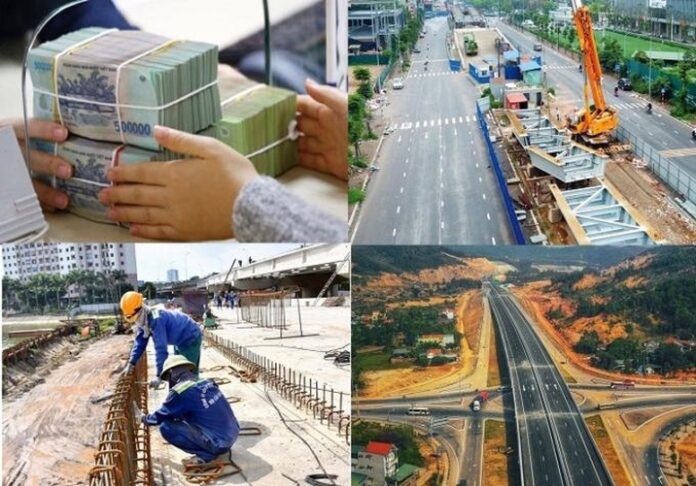
Streamlining Payment Profiles: Expediting Capital Disbursement for Tasks and Projects
The Ministry of Finance has asserted that changes in legal documents (such as the Land Law, State Budget Law, Public Investment Law, and Bidding Law) and new requirements in law enforcement necessitate the proposal for a Decree regulating the management, disbursement, and settlement of projects utilizing public investment capital (replacing the Government’s Decree No.
99/2021/NĐ-CP
dated November 11, 2021). This proposal is deemed essential and legally grounded.
The decree aims to comprehensively and uniformly regulate state management regarding the management, disbursement, and settlement of projects utilizing public investment capital, adhering to current legal regulations. It also closely follows the principle of reforming control and disbursement procedures at the State Treasury, aiming for 100% online disbursement. This involves simplifying documents submitted to the State Treasury, digitizing control processes, clearly defining the scope of State Treasury’s disbursement control, and thoroughly delegating management to line ministries and investors during project implementation and capital disbursement to expedite the release of public investment resources.
Streamlining Payment Profiles: Expediting Capital Disbursement for Tasks and Projects
According to the draft, contracts, contract supplements, approved estimates, and compensation, support, and resettlement plans approved by competent authorities will be condensed into summary tables prepared by the investor, who will be accountable for the information provided.
The table determining the value of completed work (prepared and accounted for by the investor) will only include the contract/estimate value and the value of completed work, excluding volume and unit price indicators. The table listing compensation, support, and resettlement payments made will only include the total amounts paid to agencies and organizations and directly to households, excluding detailed contents according to contract terms.
The settlement profile will no longer include the decision or document approving the plan for selecting bidders by the competent authority as stipulated in the Bidding Law.
The capital disbursement time has been reduced to a maximum of 2 working days from receiving the complete settlement profile (down from 3 days).
Regulations on Decentralization and Empowerment in Interim Management
The draft decree’s regulations on interim capital for public investment projects aim to enhance the responsibility of investors and their managing agencies in utilizing and recovering interim capital, curbing the abuse and prolonged occupation of interim capital. Specifically:
The content regarding “the amount of interim capital recovery each time and the timing of interim capital recovery each time” does not need to be specified in the contract. Only the amount of interim capital, the timing of the first interim capital, and other contents ensuring the recovery of all interim capital when the disbursement value reaches 80% of the contract value (unless authorized by competent authorities to have a higher rate) need to be specified.
There is no regulation on the maximum amount of interim capital. For construction contracts, the amount of interim capital shall comply with the regulations in the Law on Construction.
The unit or organization in charge of compensation, support, and resettlement shall transfer all compensation amounts of the unit or organization performing the task of compensation, support, and resettlement if the landowner or property owner does not receive the money or there is a dispute. This transfer shall be made to the interest-free deposit account of the organization in charge of compensation, support, and resettlement at a commercial bank controlled by the State (in accordance with the new provisions of the Land Law No. 31/2024/QH15).
Thoroughly decentralize the responsibility to the investor in managing and recovering interim capital: The investor is responsible for requesting interim capital for the right subjects, in line with the project’s progress and disbursement capacity. The investor is also responsible for closely monitoring each interim capital amount, recovering interim capital upon completion of the volume, and periodically reporting on the use and recovery of interim capital to the investor’s managing agency. The investor must provide explanations for any delays, overdue interim capital, or violations in interim capital management.
Additionally, the managing agency has the responsibility to direct and urge the investor to take measures to ensure the recovery of all overdue interim capital.
The regulation requiring the Ministry of Finance and the Department of Finance to request ministries, central agencies, and People’s Committees at all levels to take measures to recover overdue interim capital for projects under their management has been removed.
Please contribute your feedback here
on the full text of the draft decree.
The Big Spenders: ‘Burning’ Through 200,000 Billion in Just Five Months
The disbursement of public investment funds has seen a significant boost, with over 24% of the plan achieved in just 5 months. However, 37 central ministries and agencies, as well as 24 localities, are lagging, with their disbursement rates falling below the national average. In some cases, there has been little to no disbursement, remaining at a meager rate of under 10%.
Unlocking Investment Opportunities: A Collaborative Effort to Overcome Challenges in District 6
On the afternoon of June 5th, Comrade Nguyen Van Duoc, a member of the Party Central Committee and standing vice-chairman of the municipal People’s Committee, along with a delegation from the Ho Chi Minh City People’s Committee, worked with District 6 to review the socio-economic situation for the first five months of 2025 and address the district’s proposals.
Social Housing Credit: Fear of ‘Fizzling Out’ from One Package to the Next
The new credit package for young people under 35 years old to buy social housing, offered by 9 participating banks, is essentially no different from the VND 120,000 billion package currently being implemented, despite the longer incentive period. With interest rates still high and limited social housing supply, this package risks falling into the same pitfalls as its predecessor.
Just Broke Ground on a New Township in Can Gio, Vinhomes Is Now Developing a Mega Project Worth $3.6 Billion in 10 Wards and Communes Along Cam Ranh Bay
The upcoming Bay-side Urban Area project in Cam Ranh City, Khanh Hoa Province, is set to embark on a crucial phase, with a focus on expediting land clearance in priority areas to ensure timely commencement of construction as per the planned schedule.





















